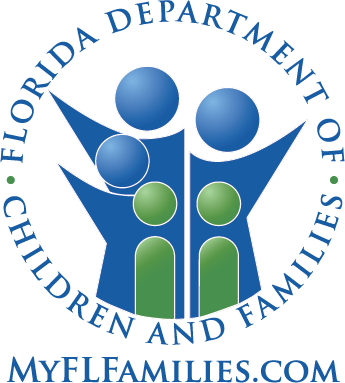Determining whether you are experiencing bipolar vs depression requires a comprehensive evaluation by a qualified healthcare professional. The symptoms of these two conditions can overlap, making it challenging to self-diagnose accurately. If you are concerned about your mental health and suspect you may be dealing with either bipolar disorder or depression, it is crucial to seek professional help. Accurate diagnosis is essential to ensure individuals receive the appropriate treatment. However, differentiating between them can be challenging, leading to the possibility of misdiagnosis.
Depression
Depression, also known as “unipolar depression,” is a mood disorder characterized by overwhelming feelings of sadness and despair. It can disrupt sleep patterns, appetite, and energy levels, making it difficult to carry out daily responsibilities. Fortunately, effective treatments are available to help manage depression.
Bipolar Disorder
On the other hand, bipolar disorder, also known as “manic depression,” involves intense emotional fluctuations. People with bipolar disorder may experience euphoric highs, known as manic episodes, and episodes of deep lows, known as depressive episodes. These mood swings can significantly disrupt daily life and may require hospitalization. However, with appropriate treatment and support, most individuals with bipolar disorder can lead fulfilling lives.
According to a prolonged study published by National Library of Medicine; A high suicide rate is a prominent feature of bipolar disorder (McIntyre et al., 2020). Approximately 15–20% of patients with bipolar disorder eventually die by suicide, and a history of suicide attempts is considered to be a predictor of bipolar disorder (Inoue et al., 2015). In addition to suicide, non-suicidal self-injury is also one of the serious symptoms of patients with mood disorders in adolescents.
Types of Depression and Bipolar Disorder
Types of Depression
Depression can manifest in various forms, including:
- Persistent Depressive Disorder: A chronic type of depression lasting for more than two years.
- Postpartum Depression: Occurs after giving birth, particularly affecting new mothers.
- Major Depressive Disorder with Seasonal Pattern: Also known as seasonal affective disorder (SAD), this type follows a seasonal pattern, often appearing during colder months when there is less natural sunlight.
Types of Bipolar Disorder
Bipolar disorder is classified into two main types:
- Bipolar 1 Disorder: Characterized by at least one manic episode, often alternating with major depressive episodes.
- Bipolar 2 Disorder: Involves at least one major depressive episode and one hypomanic episode, a milder form of mania.
Can Depression Transition to Bipolar Disorder?
Episodes of clinical depression can occur in both bipolar disorder and unipolar depression (major depressive disorder). However, accurately determining if the episodes indicate the presence of bipolar disorder can be challenging. Continued treatment and ongoing assessment are necessary before reaching a conclusive diagnosis. Though an unexpected diagnosis can be challenging to cope with, it is essential for ensuring proper and effective treatment.
Bipolar vs Depression: Identifying Symptoms
Symptoms of Depression
A depressive episode involves five or more symptoms, lasting most or all of the day for two weeks or more. Symptoms include:
- Sadness, hopelessness, worthlessness, or an empty feeling
- Pessimism
- Guilt
- Lack of interest in previously enjoyable activities
- Insomnia or sleeping too much
- Restlessness or difficulty concentrating
- Irritability
- Eating too much or too little
- Headaches or various aches and pains
- Thoughts of death, suicide, or suicide attempts
Symptoms of Bipolar Disorder
Bipolar disorder features alternating periods of depression and hypomania or mania. Symptoms of hypomania and mania include:
- Restlessness, high energy, or increased activity
- Racing thoughts or being easily distracted
- Grandiose ideas or unrealistic beliefs
- Euphoria
- Irritability, aggressiveness, or quick anger
- Needing little sleep
- High sex drive
Severe mania can cause delusions and hallucinations, necessitating hospitalization. Hypomania lasts at least four days and is less severe.
Bipolar vs Depression: Risk Factors
Depression can affect individuals from all walks of life, but certain risk factors may increase susceptibility. These risk factors include serious illnesses, a family history of depression, and exposure to environmental and psychological stressors. While the exact cause of bipolar disorder remains unknown, a family history of the condition seems to play a significant role. Bipolar disorder is most commonly noticeable during adolescence or early adulthood, although it can manifest later in life. Individuals with bipolar disorder are at an elevated risk of developing other conditions, including substance abuse, migraines, heart disease, and additional mental health disorders such as post-traumatic stress disorder (PTSD), attention deficit hyperactivity disorder (ADHD), and social phobia.
Bipolar vs Depression: How to Identify
Accurately diagnosing bipolar disorder can prove complex, particularly when attempting to recognize hypomania or mania in oneself. This complexity contributes to the potential for misdiagnosis, as symptoms might be mistaken for depression if healthcare professionals lack complete information. Achieving an accurate diagnosis requires a thorough analysis of symptoms and a comprehensive understanding of the individual’s medical history. Individuals need to disclose any medications or supplements they are taking and divulge any history of substance abuse. Although no specific diagnostic test can definitively identify bipolar disorder or depression, additional tests, such as physical and neurological examinations, laboratory tests, and brain imaging, may be utilized to rule out other conditions that mimic depressive symptoms.
Dangers of Misdiagnosis
Misdiagnosis of bipolar disorder or depression can lead to challenges in treatment, as the conditions require different therapeutic approaches. In the case of bipolar disorder, the use of antidepressants may worsen symptoms and potentially trigger manic episodes. Consequently, individuals with bipolar disorder may benefit more from mood-stabilizing medications like lithium.
Am I bipolar or depressed? Minimize the Risk of Misdiagnosis
In conclusion, if you find yourself wondering whether you are experiencing bipolar disorder or depression, it is essential to seek a professional evaluation to avoid the risk of misdiagnosis. Call Still Mind today to get help for your diagnosis and start feeling better.



